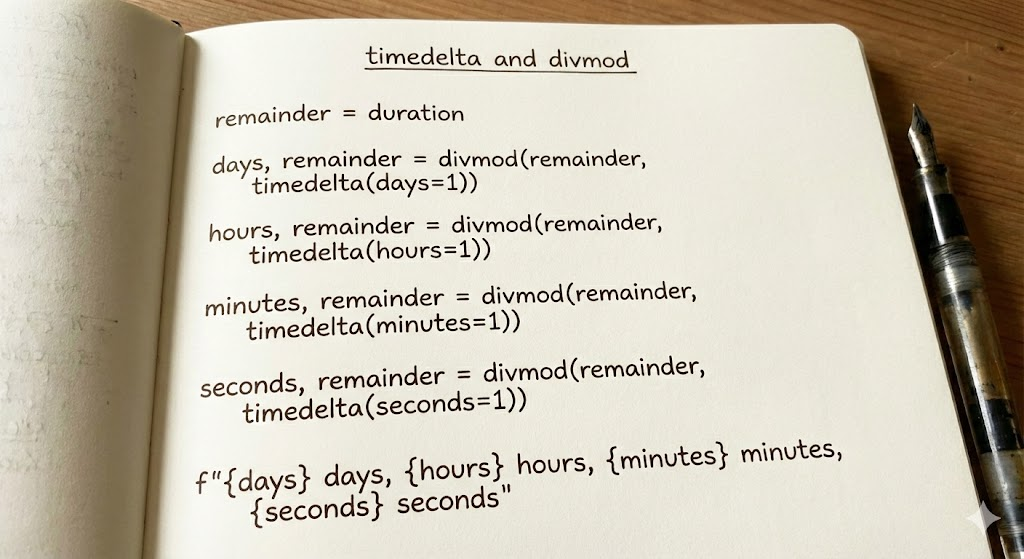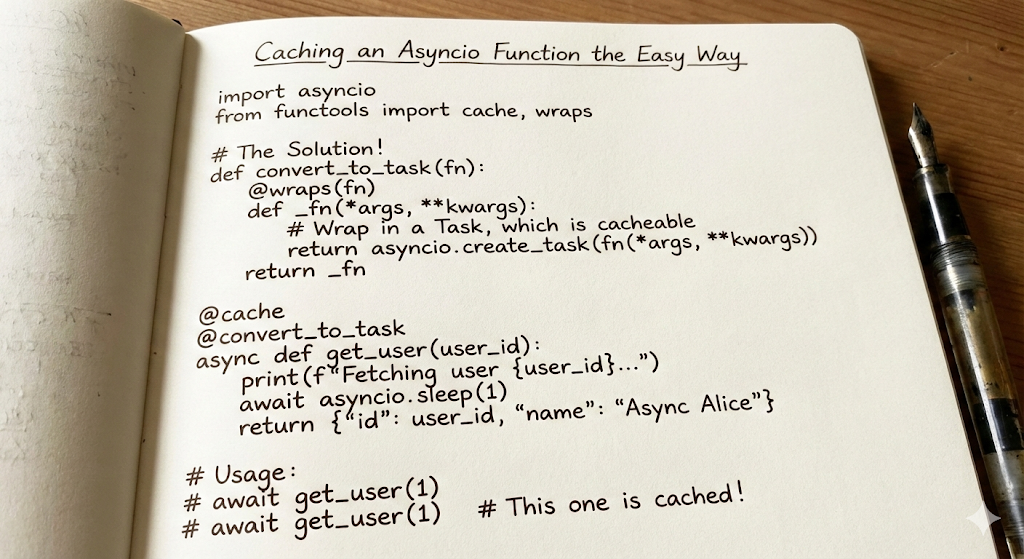I posted a lot about free threading in the past year:
Over all I had 3 issues with free-threading:
- Reference count contention hurts performance on even immutable objects.
- Often benign code abstractions can hurt multi-threading performance …
I posted a lot about free threading in the past year:
Over all I had 3 issues with free-threading:
Working with datetime is hard and error prone, but Python actually provides the right tools with timedelta to work with them.
It's a shame that most developers are not making the best use of it.

Let's first catch up what the basic operations are:
Now, let's …
read moreIf you've used asyncio for some time you've probably noticed a few things that work differently to the synchronous counter parts.
 I recently had to add some caching to an asyncio function. Let's say something like:
I recently had to add some caching to an asyncio function. Let's say something like:
async def get_user(user_id: UUID) -> User:
...
Of course naturally we want to use functools …
read moreI've been on vacation in China leading up the lunar new year and I'd rather not spend all my time researching some heavy topic. However, I thought I might instead spend a few minutes combining my previous posts on marimo notebooks and the Lunar calendar.
read more
Recently I've been updating some of my libraries to Python 3.10+ after Python 3.9 has finally reached end of life.
The upgrade to Python 3.10 is a relatively simple one, but I thought it be a good idea to run tests on different versions of Python.
Recently I've been working on framework to run LLM tasks using AWS's excellent SQS. And I made the decision to write my own task framework/library as opposed to using a pre-exiting framework. I thought this would be a great opportunity to discuss the considerations and levels of abstractions involved …
read moreDon't listen to random benchmarks..
I recently came across an article benchmarking Python performances in web frameworks, comparing asyncio and sync performance.
The author sets out to measure performance of FastAPI/Django web servers running with postgresql comparing async and non-async workloads. The methodology is pretty reasonable, the following is …
read more... but that's actually a good thing
I've already written a ton about subinterpreters since a year ago:
Recently I had some time to dig a bit deeper into subinterpreters and check my understanding …
read more